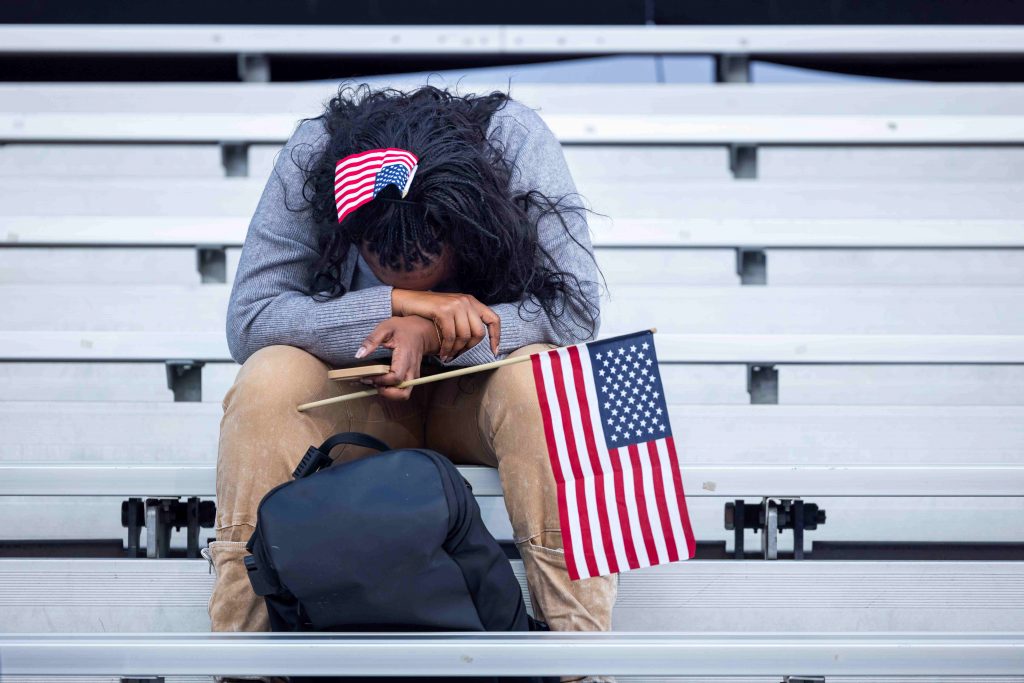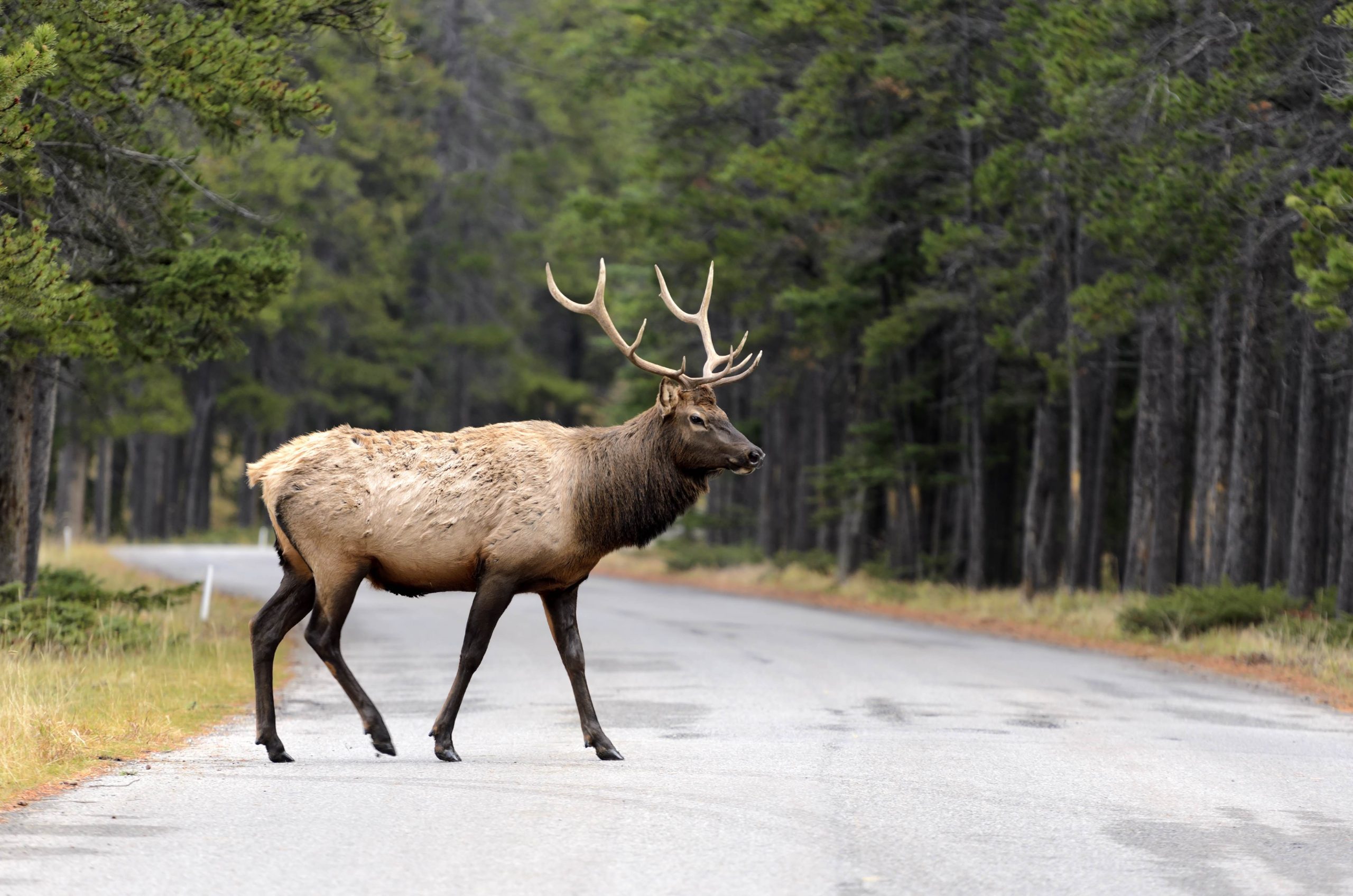Disgusted by Donald Trump’s first presidential victory in 2016, Arkansas native Heather Fitz moved to pursue a new life in Canada.
Less than a week after arriving in Halifax, Nova Scotia, with her then-husband, she was questioning her choice.
Fitz had expected Canada to be cold, but nothing had prepared her for the freezing, 68 mile-an-hour winds that rocked their seven-story apartment building one night during a nor’easter.
“I was like, did we make the right decision?” said Fitz. “I was googling ‘building swaying is this safe.’ ”
With its progressive laws, strict gun control and universal healthcare, Canada has long beckoned as an escapist fantasy for some Americans. Amid a second Trump presidency , more are considering emigrating north, with searches for “move to Canada” spiking after the Republican’s election and inauguration, according to Google Trends.
Few will actually go, of course. It’s easier to vow to expatriate than to navigate immigration bureaucracies and start over abroad, leaving friends, family and jobs behind.
But some Americans have actually done it. They say their journeys have been by turns surprising and rewarding—if sometimes lonely.
After relocating, Fitz found a human-resources job at a furniture company, where she was struck by the kindness of her coworkers. One peer, after a U.S. vacation, returned with souvenirs she thought Fitz would have missed, including American flag-themed pinwheels, confetti poppers and Dunkin’ coffee.
“It was just the cutest thing,” said Fitz, 37, who returned to the U.S. at the start of the pandemic to be closer to family. She now lives in Tampa, Fla. Though the politics there are more conservative than she’d like, she appreciates other aspects of the state: “The air doesn’t hurt my face anymore.”
Juan Marcos Percy, 47, a freelance sound engineer and longtime New Yorker, applied to immigrate to Canada in 2016 after he saw Trump’s first presidential bid gaining steam. “I told my friends, this guy is ruthless,” he said.
Percy, who came to the U.S. from Colombia as a child and later became a citizen, was unnerved by Trump’s rhetoric on immigration and fed up with America’s increasing polarization.

Even after seven years in Vancouver, he still misses aspects of life in the U.S.—especially cheaper consumer goods. “Everything is just ridiculously expensive here,” said Percy.
While consumer goods have traditionally been more costly because of Canada’s higher taxes and weaker dollar (known locally as the “loonie”), inflation has raised other prices, especially food. “You go to the supermarket, you’re paying four to five dollars for a head of lettuce, or five to six dollars for a carton of eggs,” Percy said.
He pines for certain staples. His favorite low-fat Jif peanut butter isn’t sold locally so he stocks up during trips to the U.S.
Still, Percy says, he’s happy to trade such inconveniences for benefits including universal healthcare. That’s especially true since a recent cancer diagnosis.
Percy has no plans to leave his adopted country. “I call it North America 2.0,” he said, adding he’s grateful his treatment is covered by the Canadian system.
Trump’s first victory helped cement Nathan Sanders’ decision to take an academic job at the University of Toronto. The experience of living in a culture that is both so similar to and so different from America’s has been strange at times.
“It’s like aliens have abducted you and created a virtual reality based on your memories,” said the 51-year-old former Pennsylvania resident. “But the simulation is a little off, and every once in a while there’s a glitch. The money is a different color, and there are pictures of the queen everywhere.”
Sanders, who became a Canadian citizen in 2022, said it felt strange as an American to swear an oath to the British monarch, who is officially Canada’s head of state. “We fought them to break free,” he said. Still, he likes that Canada feels less politically polarized.
Americans seeking to emigrate to Canada these days will find a shrinking welcome mat.
The country has long embraced immigrants , and in recent years allowed in a significant number. More than a fifth of its population were born elsewhere—the highest proportion among G7 countries. But increasing economic strains have shifted public opinion, and the government plans to reduce immigration in an effort to alleviate pressure on housing , social services and infrastructure.
Former New Yorker Stephen Shainbart has been surprised by how openly some Canadians disdain Americans, given the country’s reputation for friendliness. At a recent party, he said, one guest commented “Ugh!” upon hearing his nationality.
“They feel they can insult the U.S. because it’s always so big and powerful and in their face,” he said. As a Mets fan who regularly rags on the Yankees, he understands the urge. Nonetheless, it hurts.
The 61-year-old psychologist, who moved to Canada to avoid Trump’s first presidency, misses the fiery spirit and easy banter of his fellow New Yorkers. At times, he says, his new life can be lonely and even somewhat dull. Though he values how safe and politically stable his adopted country feels, it’s hard being so far from friends and family, and he returns often to visit the U.S., where his son lives.
Shainbart says his time abroad has given him a new appreciation for the role the U.S. plays overseas, including sparing allies like Canada the need to build up a strong military.
For Lucia Lloyd, 56, it’s proven harder than she’d hoped to leave the U.S. behind.
The pastor shocked her college-age daughters and then-husband when she declared in 2018 that she was moving to Canada after Brett Kavanaugh was confirmed to the Supreme Court following a hotly contested hearing over sexual-assault allegations . “I told them I wasn’t joking,” said Lloyd.
She found another position with a church outside Toronto and left Virginia not long thereafter.
Lloyd values the overall progressivism of her new home. Increasingly, though, she says she sees more Trump-like politics arriving in Canada, with some conservative politicians advocating for legislation that would curb transgender rights. “That’s flowed over the borders,” she said.
Trump’s recent declarations that Canada should become the 51st state have added to her sense that there’s nowhere to flee.
“It’s very destructive when you can’t count on anything being stable or reliable,” she said.
Write to Te-Ping Chen at Te-ping.Chen@wsj.com and Vipal Monga at vipal.monga@wsj.com



